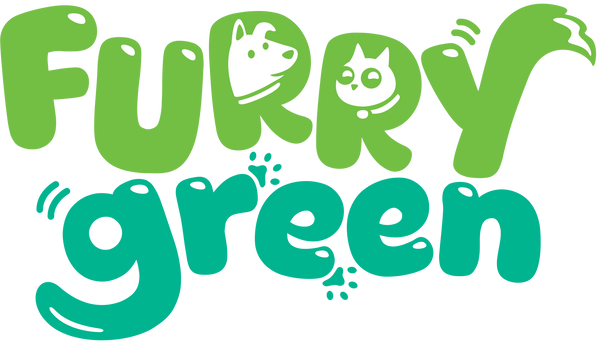
Dietary Fiber is the Secret to Dog Health!
Share
Dietary Fiber: The Secret to Your Dog's Health
Quick summary: Dietary fiber supports digestion, helps weight management, stabilizes blood sugar, and feeds beneficial gut bacteria. When added properly it's safe and helpful for most dogs—always coordinate changes with your veterinarian.
What is dietary fiber?
Dietary fiber is the part of plant foods that dogs cannot digest in the small intestine. Instead, fiber travels to the large intestine where it adds bulk, affects water balance, and is fermented by gut microbes. That fermentative activity yields short-chain fatty acids (SCFAs) that support colon health and immune function.
Two types of fiber (and why both matter)
Soluble fiber dissolves in water, forming a gel that softens stool and slows nutrient absorption. Useful for constipation and for moderating blood glucose.
Insoluble fiber does not dissolve, increases stool bulk, and speeds transit — helpful for some causes of constipation and for overall stool regularity. Most practical diets include both types.
Benefits for dogs
- Improves stool quality and bowel regularity
- Helps with weight management by increasing satiety
- Can reduce post-meal glucose spikes (useful in diabetic dogs under veterinary supervision)
- Feeds beneficial gut bacteria (prebiotic effect)
- May contribute to cardiovascular and colonic health (evidence evolving)
Practical tips: How to add fiber safely
- Introduce slowly. Add small amounts over 7–14 days to avoid gas and upset.
- Use a mix. Combine soluble and insoluble sources for balanced effects.
- Watch portion sizes. Excessive fiber can reduce calorie availability and interfere with absorption of some nutrients.
- Ensure a complete diet. Fiber complements — it does not replace — high-quality proteins, fats, vitamins, and minerals.
Owner-friendly servings & examples
Below are safe, general portion ideas for an average medium-sized dog (≈10–25 kg). Adjust down for small dogs and up for larger dogs. Always chop or cook hard items as needed to avoid choking:
| Ingredient | Type | Typical serving (adult medium dog) |
|---|---|---|
| Cooked oats | Soluble | 1–3 tablespoons |
| Cooked brown rice | Soluble + Insoluble | 1–3 tablespoons |
| Steamed carrots | Insoluble | 1–2 tablespoons |
| Steamed green beans | Insoluble | 1–3 tablespoons |
| Apple (peeled, seeds removed) | Soluble | 1–2 thin slices |
| Pureed pumpkin (plain) | Soluble | 1–2 tablespoons |
| Konjac (glucomannan)* | Soluble | Use veterinary product directions |
*Konjac/glucomannan is a concentrated fiber. Do not use human supplements without veterinary approval.
Give Your Dog the Perfect Fiber Balance
Furry Green fresh meals are carefully formulated with optimal fiber from whole vegetables, brown rice, and premium proteins—delivering complete nutrition your dog will love.
Shop Furry Green Fresh Pet FoodFurry Green Pets: sustainability + nutrition
Furry Green transforms surplus produce into balanced, fresh meals for dogs. Our recipes combine fiber-rich plant ingredients with animal-sourced proteins to preserve nutrient balance and palatability while reducing food waste.
Bottom line
Fiber is a practical, often underused tool in canine nutrition. When introduced correctly and balanced with the rest of the diet, it supports digestion, weight control, and the gut microbiome. Work with your veterinarian to determine the ideal amount and sources for your dog.
Frequently Asked Questions
How much fiber should I add to my dog's diet?
Start small—1–2 tablespoons of fiber-rich foods per day for a medium-sized dog—and increase gradually over 7–14 days. Monitor stool quality and consult your veterinarian to tailor the amount to your dog's specific needs, weight, and health conditions.
Can too much fiber harm my dog?
Yes. Excessive fiber can reduce calorie absorption, interfere with nutrient uptake, cause gas, bloating, or diarrhea, and may worsen certain digestive conditions. Always introduce fiber slowly and in appropriate portions, and consult your vet if digestive issues occur.
What are the best fiber sources for dogs with diabetes?
Soluble fiber sources like cooked oats, pureed pumpkin, and glucomannan (under veterinary supervision) can help moderate blood glucose spikes. However, diabetic dogs require individualized management—always work with your veterinarian to adjust diet and insulin dosing together.
References & suggested reading
Below are authoritative sources and search suggestions for peer-reviewed citations and links before publishing.
-
Authoritative books / manuals:
- National Research Council. Nutrient Requirements of Dogs and Cats. (2006).
- Small Animal Clinical Nutrition (Hand MS, et al.).
- American College of Veterinary Nutrition (ACVN) position statements.
- Journals to search: Journal of Veterinary Internal Medicine (JVIM), Journal of the American Veterinary Medical Association (JAVMA), American Journal of Veterinary Research, Veterinary Research, British Journal of Nutrition.
-
Search suggestions (Google Scholar or PubMed):
- "canine dietary fiber clinical trial"
- "glucomannan dog trial blood glucose"
- "dietary fiber gut microbiome dogs study"
- "pumpkin soluble fiber dog constipation trial"
